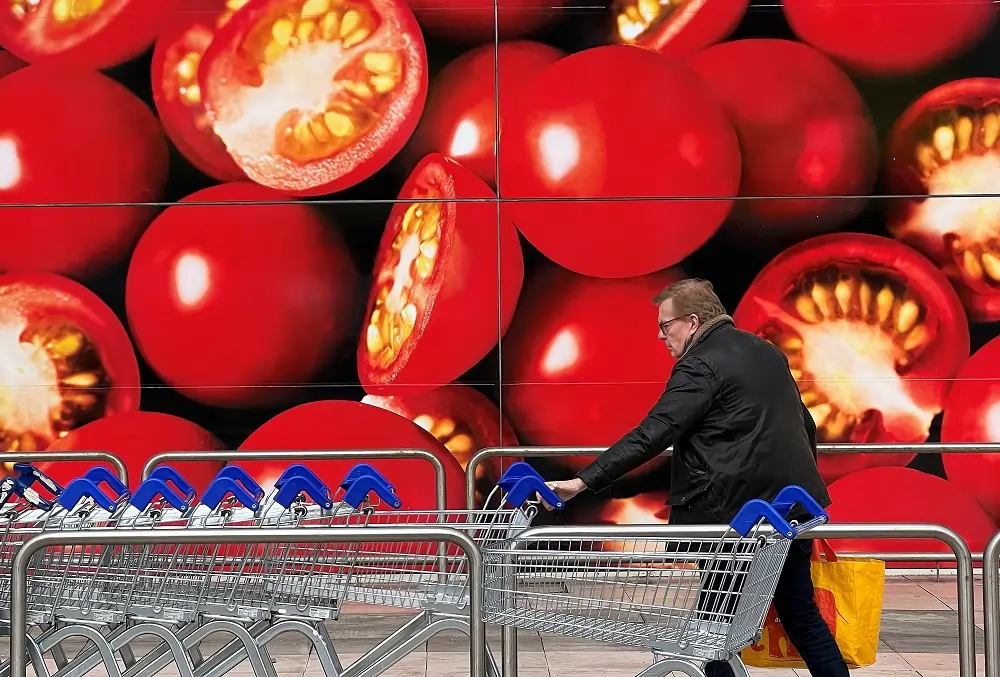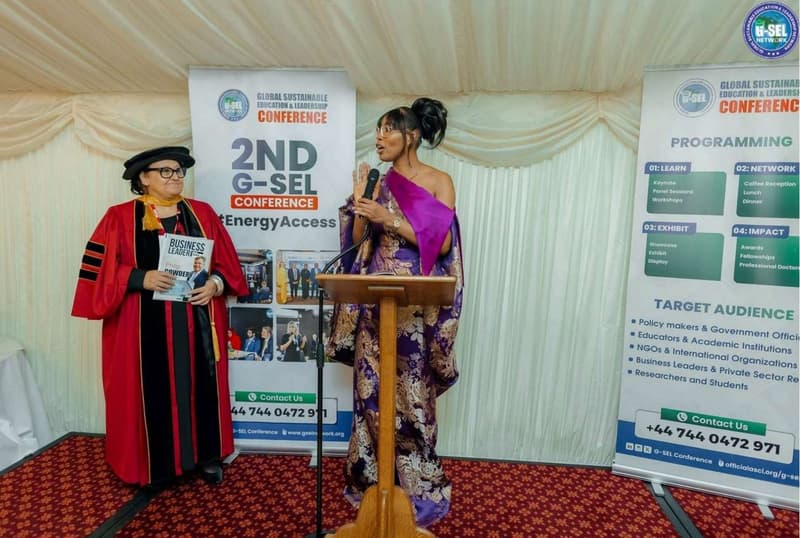
By James Davey
LONDON (Reuters) -Tesco, Britain’s biggest supermarket group, lifted its annual profit forecast on Thursday after market share gains drove a 10% rise in the first half, giving it momentum ahead of the festive trading period.
Shares in the group, which has a nearly 28% share of the UK grocery market, climbed 3%, taking gains so far this year to 26%.
CEO Ken Murphy said Tesco’s work to improve its value and the quality of its products and service had delivered volume growth ahead of its expectations in its first half to Aug. 24.
“It gives us great momentum going into Christmas,” he told reporters.
Tesco was planning for strong festive demand, he said, believing the UK consumer was “in reasonably good shape”.
It expected retail adjusted operating profit, its preferred profit measure, of around 2.9 billion pounds ($3.8 billion) for its 2024/25 financial year, up from a previous forecast of at least 2.8 billion pounds.
It made 2.76 billion pounds in 2023/24 and 1.56 billion in the first half of its 2024/25 year.
Its UK like-for-like sales rose 3.5% in its second quarter, after a 4.6% increase in the first, reflecting an easing of inflation.
Tesco also benefited from its strategy of matching the prices of discounter Aldi on nearly 800 items, and the popularity of its Clubcard loyalty scheme, which provides lower prices for members. These programmes are financed by cost savings.
Tesco’s market share rose 60 basis points year-on-year to 27.8% in the 12 weeks to Sept. 1, its highest since January 2022, researcher Kantar said.
In contrast to Tesco’s update, other UK retail data has been subdued, particularly for more discretionary, larger ticket items such as furniture, kitchens and bathrooms.
Non-food products represent just 7% of Tesco’s sales.
Surveys have shown UK consumer confidence fell following warnings from Prime Minister Keir Starmer’s about the British economy’s weakness and the likely need for tax increases in an Oct. 30 budget.
On Wednesday, the boss of rival Sainsbury’s told Reuters Britons will be cautious about spending until the budget brings clarity and interest rates fall further.
(Reporting by James Davey; Editing by Sarah Young, Mark Potter and Barbara Lewis)


